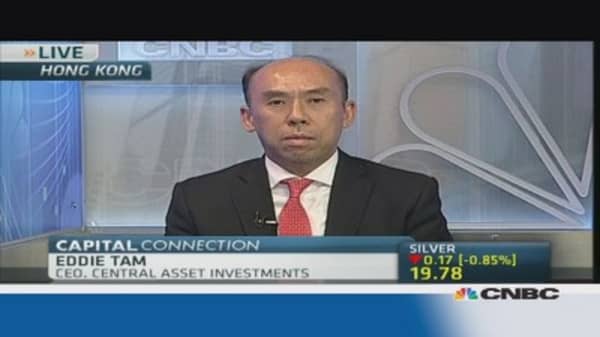Beijing's move to conduct a nation-wide audit of China's local government loans this week has fueled fears over the severity of the state's colossal debt pile, but Bank of America Merrill Lynch (BoFA) has argued that the concerns are overblown.
According to economists at the bank, China's local government debt, which is estimated to be around 15-16 trillion renminbi (RMB) ($2.5-2.6 trillion) as of the end of 2012, still stands at a very low debt-to-GDP ratio of 30 percent.
When combined with the central government debt, China's total debt still measures 50 percent of GDP, which BoFA describes as a relatively healthy position compared to other highly leveraged economies like the U.S. and Japan, which have debt to GDP ratios of around 100 percent and 200 percent, respectively.
(Read more: China's 'Ghost Cities' Warn of Property Bubble: Chanos)
In addition, its central bank's cash savings, equivalent to 6 percent of GDP, places the central bank in strong position to weather any shocks, said the bank.
And even if a crisis situation were to arise, it would be manageable as almost all government debt is denominated in local currency and owned by domestic entities, meaning that "the PBoC can prevent a government debt crisis with its unlimited capability in liquidity supply," the bank noted.
"We are not saying that markets should be complacent about local government debt, but we see little new news," China economists Ting Lu and Xiaojia Zhi at BoFA wrote in a new report.
(Read more: China official PMI rises to 50.3 in July)
"We don't think China is on the brink of a government debt crisis, especially if the new leaders can take sensible measures in coming years," they added.





